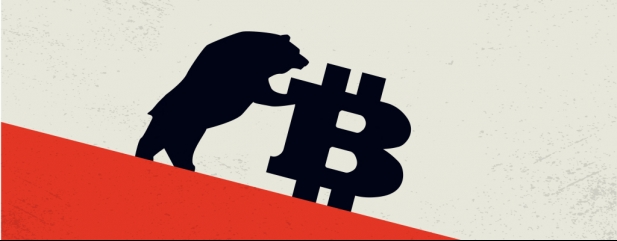Archived article
Please note that tax, investment, pension and ISA rules can change and the information and any views contained in this article may now be inaccurate.
How rising interest rates are increasing the risk of recession

While all eyes were on the US Federal Reserve’s three-quarter point interest rate increase last week (15 June) the European Central Bank was conducting an emergency meeting to discuss the risks of fragmentation across the 19 countries of the eurozone.
The ECB is worried about its one-size-fits-all monetary policy. This could cause problems for countries carrying structurally high debts which feel a greater chill from the bank’s move to push up interest rates and tighten monetary conditions.
Italy is the real worry for investors, and this is evidenced by long-term government Italian bond yields which have surged from around 1% at the start of 2022 to over 4%.
By contrast German 10-year bunds have risen from minus 0.3% to 1.6%, implying the Italian bond spread has doubled (from 1.3% to 2.6%).
Countries with higher indebtedness tend to experience lower growth as debt servicing costs eat into investment and growth.
To preserve the orderly functioning of markets the governing council of the ECB said it will apply ‘flexibility’ when reinvesting bond redemptions. This implies it will act to support the bond markets of peripheral counties.
Chief economist Nouriel Roubini at Atlas Capital Team has pointed out that in practice any facility designed to rescue Italian bonds may come with unacceptable conditions to the Italian government.
There are growing fears that raising interest rates while the Eurozone recovery is still fragile will push the region into recession later this year.
One investor with a gloomy view on the Eurozone and its stock markets is Ray Dallio’s Bridgewater Associates which is now the biggest short seller of European stocks according to a Reuters report.
The hedge fund has made at least a $6.7 billion bet against 27 European companies including a $1 billion bet against semiconductor equipment maker ASML (ASML:AMS).
Short selling involves borrowing shares to sell them with the intention of buying them back at a lower price to pocket the difference.
Another sign of increasing market fragility is the spectacular collapse of crypto currency bitcoin which has dropped 75% from almost $69,000 in November 2021 to around $17,600.
The sharp fall is affecting some of the largest investors in the space. Singapore-based crypto hedge fund Three Arrows Capital said recently it had suffered substantial losses.
And while up until now corporate bond investors have been relatively relaxed about the strength of the US economy, this seems to have changed.
According to data provider EPFR $6.6 billion was withdrawn from high-yielding bond funds in the week ending 17 June, the highest weekly outflows since the start of the pandemic.
High yield bonds are issued by the most indebted companies with the weakest balance sheets and are considered more likely to fail in a recession.
Important information:
These articles are provided by Shares magazine which is published by AJ Bell Media, a part of AJ Bell. Shares is not written by AJ Bell.
Shares is provided for your general information and use and is not a personal recommendation to invest. It is not intended to be relied upon by you in making or not making any investment decisions. The investments referred to in these articles will not be suitable for all investors. If in doubt please seek appropriate independent financial advice.
Investors acting on the information in these articles do so at their own risk and AJ Bell Media and its staff do not accept liability for losses suffered by investors as a result of their investment decisions.
Issue contents
Education
Feature
Great Ideas
Investment Trusts
News
- Supermarket sales slide extends to over a year as shoppers trade down
- Trustpilot pulls forward breakeven target at its big investor day
- Henderson manager hits the sell button on Shell
- Why Primark's plan to trial new click and collect service could be smart
- How rising interest rates are increasing the risk of recession
 magazine
magazine









